Counseling, Educational Psychology & Research
Meet our Alumni
Meet some of our amazing alumni and see where a degree from the EDPR program can take you!
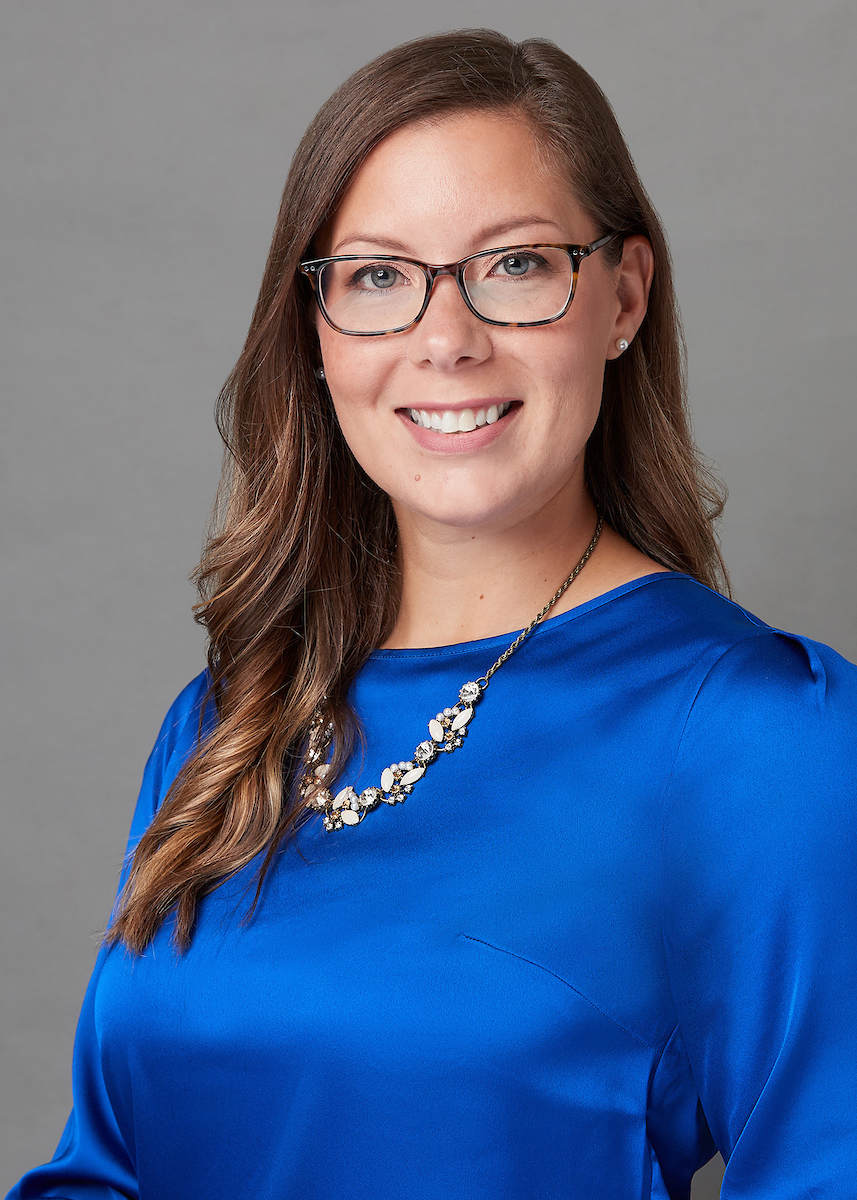 Dr. Angela Martin (previously Robinson) graduated in Fall 2021 with a PhD in Educational Psychology
as well as with a graduate certificate in Quantitative Research Methods. Dr. Martin
says, "My dissertation research examined the role of social support on stress and
well-being of online college students. I found the dissertation process to be the
most rewarding part of my PhD journey mostly due to the incredible support that I
received from my EDPR faculty and peers. My dissertation committee went above and
beyond to support me through this process and my EDPR peers played a vital role in
my success in the program. I still maintain a close relationship with my peers and
often call on them for advice and collaboration.
Dr. Angela Martin (previously Robinson) graduated in Fall 2021 with a PhD in Educational Psychology
as well as with a graduate certificate in Quantitative Research Methods. Dr. Martin
says, "My dissertation research examined the role of social support on stress and
well-being of online college students. I found the dissertation process to be the
most rewarding part of my PhD journey mostly due to the incredible support that I
received from my EDPR faculty and peers. My dissertation committee went above and
beyond to support me through this process and my EDPR peers played a vital role in
my success in the program. I still maintain a close relationship with my peers and
often call on them for advice and collaboration.
I currently work for the University of Memphis- Global campus as a Student Advocate.
In this role, I am responsible for recruiting and advising online undergraduate and
graduate students through our corporate partnership with FedEx. I also work as an
adjunct instructor for the College of Professional and Liberal Studies, where I teach
a variety of online undergraduate courses in human development and family studies.
I am currently researching online student engagement and satisfaction for a program
evaluation at UofM. The EDPR doctoral program provided me with the content knowledge
and research skills necessary to successfully lead my own research projects, to critically
analyze data and to confidently synthesize results in a meaningful way. My time in
the EDPR doctoral program was undeniably the most challenging experience I’ve ever
had, but it was also one of the most rewarding experiences and it continues to add
value to my life."
 Dr. Anne Zachry, PhD, OTR/L currently serves as the Chair of the Occupational Therapy Program at
the University of Tennessee Health Science Center. Dr. Zachry writes, "My EDPR degree
gave me the credentials to write three parenting books that were published by the
American Academy of Pediatrics: Retro Baby, Cut Back on All the Gear and Boost Your Baby’s Development with Over 100
Time-Tested Activities was published in 2013, and Retro Toddler, More Than 100 Old-School Activities to Boost Development was published in 2018. The second edition of Retro Baby was released in 2022. My research experience in the EDPR program has provided me
with many opportunities including developing the UTHSC Rachel Kay Stevens Therapy Center, the first student-run pro bono pediatric occupational therapy clinic in the country
and gaining the skills to write an award-winning blog Pediatric OT Tips Blog which was ranked 12th of the Top 50 Occupational Therapy blogs on the web (2022).
I have had a number of media appearance and received the following awards: Memphis
Business Journal Health Care Heroes Award Finalist (2016), Student Government Association
Executive Council Excellence in Teaching Award (2016), University of Tennessee Health
Science Center Alumni Association Public Service Award (2016), Benjamin Franklin Goal
Medal Award, Retro Baby, Independent Book Publishers Association (2014), Honorable
Mention for Retro Baby, The American Medical Writer’s Association Book Awards (2014)
and Gold Medal Award for Retro Baby, Annual Midwest Book Awards (2014).
Dr. Anne Zachry, PhD, OTR/L currently serves as the Chair of the Occupational Therapy Program at
the University of Tennessee Health Science Center. Dr. Zachry writes, "My EDPR degree
gave me the credentials to write three parenting books that were published by the
American Academy of Pediatrics: Retro Baby, Cut Back on All the Gear and Boost Your Baby’s Development with Over 100
Time-Tested Activities was published in 2013, and Retro Toddler, More Than 100 Old-School Activities to Boost Development was published in 2018. The second edition of Retro Baby was released in 2022. My research experience in the EDPR program has provided me
with many opportunities including developing the UTHSC Rachel Kay Stevens Therapy Center, the first student-run pro bono pediatric occupational therapy clinic in the country
and gaining the skills to write an award-winning blog Pediatric OT Tips Blog which was ranked 12th of the Top 50 Occupational Therapy blogs on the web (2022).
I have had a number of media appearance and received the following awards: Memphis
Business Journal Health Care Heroes Award Finalist (2016), Student Government Association
Executive Council Excellence in Teaching Award (2016), University of Tennessee Health
Science Center Alumni Association Public Service Award (2016), Benjamin Franklin Goal
Medal Award, Retro Baby, Independent Book Publishers Association (2014), Honorable
Mention for Retro Baby, The American Medical Writer’s Association Book Awards (2014)
and Gold Medal Award for Retro Baby, Annual Midwest Book Awards (2014).
I really appreciated the individualized attention and guidance that I received in the EDPR progam. My advisor, Dr. Yeh Hsueh was amazing."
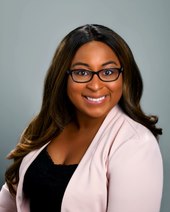 Dr. Ashley Payne serves as Assistant Professor of Psychology at Missouri State University. She writes,
"I use everything that I learned in the EDPR program in my career. I currently teach
courses in child and adolescent development, educational psychology, and diversity.
The content I learned in my courses and research provided me with the foundational
knowledge to teach and develop my courses. As a graduate teaching and research assistant,
I learned valuable teaching and research skills that I am able to continuously build
on in my career. For example, the flexibility of teaching the EDPR 2111 and 3302 courses
allowed me to experiment with various assignments and teaching styles that are rooted
in educational theory and practice to see what works best for myself and my students.
I have also learned to adapt my teaching style and assignments to the changing student
demographic. As a research assistant, I was able to learn and refine foundational
research skills that I continue to use in my professional career. Specifically, as
a qualitative researcher, I have learned a variety of data analysis and writing methods
that have made me successful in publishing in academic journals. Further, I am able
to train a new generation of qualitative researchers in the valuability of qualitative
research in psychology and teach them skills in qualitative interviewing, thematic
analysis, photovoice, and youth participatory action research.
Dr. Ashley Payne serves as Assistant Professor of Psychology at Missouri State University. She writes,
"I use everything that I learned in the EDPR program in my career. I currently teach
courses in child and adolescent development, educational psychology, and diversity.
The content I learned in my courses and research provided me with the foundational
knowledge to teach and develop my courses. As a graduate teaching and research assistant,
I learned valuable teaching and research skills that I am able to continuously build
on in my career. For example, the flexibility of teaching the EDPR 2111 and 3302 courses
allowed me to experiment with various assignments and teaching styles that are rooted
in educational theory and practice to see what works best for myself and my students.
I have also learned to adapt my teaching style and assignments to the changing student
demographic. As a research assistant, I was able to learn and refine foundational
research skills that I continue to use in my professional career. Specifically, as
a qualitative researcher, I have learned a variety of data analysis and writing methods
that have made me successful in publishing in academic journals. Further, I am able
to train a new generation of qualitative researchers in the valuability of qualitative
research in psychology and teach them skills in qualitative interviewing, thematic
analysis, photovoice, and youth participatory action research.
As part of my training in the EDPR program, I learned how to form community partnerships with local schools and develop programs to help suit the needs of the students as well as fill gaps in research for Black girls in K-12 education. Because of those skills and the research that I conducted in those partnerships, I have been able to build community partnerships with local school districts and community organizations in Springfield. Currently, I run a mentoring program called "Black Girl Talks: Hip Hop, Social Media, and Empowerment" which is built from my dissertation research. This program is continuing in its 3rd year and has been wildly successful in two local school districts and a non-profit organization.
I appreciate everything about this program. What I appreciate most of all is how invested my advisors and professors were in my success. They were ready and willing to help me reach my goals and provided me with every avenue possible to prepare me for my professional career."
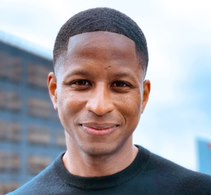 Dr. Derwin Sisnett currently is completing a fellowship at the Harvard Graduate School of Design, where
"I am researching and designing a new practice focused on the adaptive reuse of spaces
for social good." Dr. Sisnett says, "My PhD in EDPR was profoundly instrumental. I
learned how to incorporate qualitative and quantitative analyses to advance work related
to education and community development. My PhD experience provided me with a credible
network of colleagues who support my work. I appreciate the flexibility and agility
of the program."
Dr. Derwin Sisnett currently is completing a fellowship at the Harvard Graduate School of Design, where
"I am researching and designing a new practice focused on the adaptive reuse of spaces
for social good." Dr. Sisnett says, "My PhD in EDPR was profoundly instrumental. I
learned how to incorporate qualitative and quantitative analyses to advance work related
to education and community development. My PhD experience provided me with a credible
network of colleagues who support my work. I appreciate the flexibility and agility
of the program."
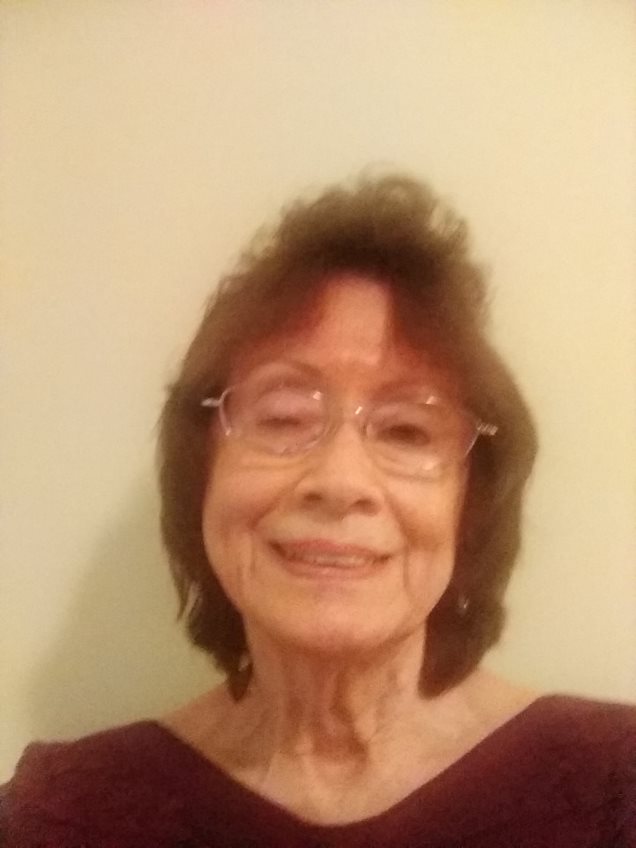 Elizabeth Velazquez states "Dr. Christian Mueller was my Thesis Advisor, and he encouraged me to look
at the problems associated with reading in elementary school. This included researching
when reading issues were identified, which children were most at risk, what had been
tried to assist these children, and what had been identified as the best tools to
help children who needed reading assistance. I am retired as a social worker, but
volunteer now as a tutor with the program “Arise to Read” in the Shelby County School
System with eight year-olds who need reading assistance. What I learned in working
on my thesis and in child development classes inspired me to become a tutor and helps
me in trying to reach the children with whom I am entrusted. EDPR teachings continually
remind me of each life’s unique and continuing development.
Elizabeth Velazquez states "Dr. Christian Mueller was my Thesis Advisor, and he encouraged me to look
at the problems associated with reading in elementary school. This included researching
when reading issues were identified, which children were most at risk, what had been
tried to assist these children, and what had been identified as the best tools to
help children who needed reading assistance. I am retired as a social worker, but
volunteer now as a tutor with the program “Arise to Read” in the Shelby County School
System with eight year-olds who need reading assistance. What I learned in working
on my thesis and in child development classes inspired me to become a tutor and helps
me in trying to reach the children with whom I am entrusted. EDPR teachings continually
remind me of each life’s unique and continuing development.
Every class in EDPR taught me so much, and I loved the academic environment. At the
time, I was a case manager with persons with disabilities. I applied what I was learning
in EDPR and I believe this helped me be more effective in my work. I was 62 when I
took the first EDPR master’s degree course, Adolescence, with Dr. Mueller. One course
at a time took five years, but it is all still with me, and I am very grateful for
the professors and other students and the opportunity to learn. Studying in the EDPR
program made my world so much larger than the smaller one I was living in."
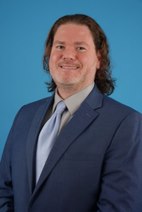 Dr. Eric Hosman earned his Ph.D. in Educational Psychology from the University of Memphis in 2017
studying epistemic cognition in pre-service teachers. He is currently the Director
of Research & Performance Management at Memphis-Shelby County Schools, a role which
is informed by the wide-ranging content courses and diverse methodology courses he
completed in the program. Dr. Hosman writes, "this role sees me supervise a team of
rock stars who conduct institutional research, develop PowerBI dashboards aligned
to district initiatives, and engineer solutions for wrangling a wide array of disparate
district and state data sources. The most important lesson I took away from the EDPR
PhD program was the fundamental importance of collaboration, which informs my day-to-day
interactions with a wide array of interdisciplinary teams. I previously served as
the NAEP Coordinator for MSCS and taught High School Mathematics for the district.
Outside of work, you may find me homebrewing beer, camping, kayaking and planning
half marathon runs in each state."
Dr. Eric Hosman earned his Ph.D. in Educational Psychology from the University of Memphis in 2017
studying epistemic cognition in pre-service teachers. He is currently the Director
of Research & Performance Management at Memphis-Shelby County Schools, a role which
is informed by the wide-ranging content courses and diverse methodology courses he
completed in the program. Dr. Hosman writes, "this role sees me supervise a team of
rock stars who conduct institutional research, develop PowerBI dashboards aligned
to district initiatives, and engineer solutions for wrangling a wide array of disparate
district and state data sources. The most important lesson I took away from the EDPR
PhD program was the fundamental importance of collaboration, which informs my day-to-day
interactions with a wide array of interdisciplinary teams. I previously served as
the NAEP Coordinator for MSCS and taught High School Mathematics for the district.
Outside of work, you may find me homebrewing beer, camping, kayaking and planning
half marathon runs in each state."
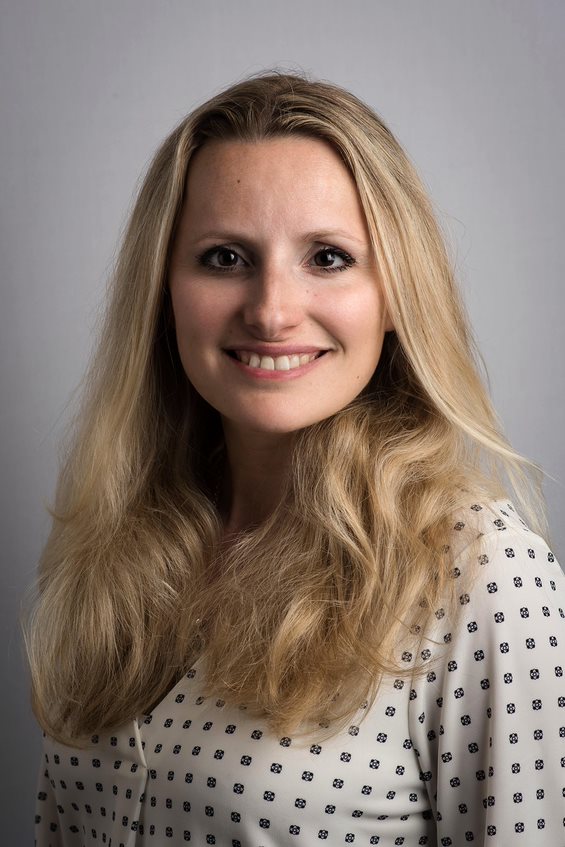 Dr. Kathi Azim is an Associate Professor in the Human Sexuality PhD program at the California Institute
of Integral Studies in San Francisco, as well as a founding member of the Motherscholar
Collective, an interdisciplinary feminist thinktank of more than 90 scholars who research
the effects the COVID-19 pandemic has had on mothers+ in academia parenting young
children. Dr. Azim says, "The qualitative certificate was one of the most useful aspects
of my graduate time and early career in US academia. I’ve developed into a qualitative
methodologist and greatly enjoy collaborating with my former co-chair and mentor Dr.
Happel-Parkins on research projects. Further, EDPR has very strong theory experts,
who have taught me how to understand theoretical concepts, apply them in my thinking
and research, and teach them to my students and mentees.
Dr. Kathi Azim is an Associate Professor in the Human Sexuality PhD program at the California Institute
of Integral Studies in San Francisco, as well as a founding member of the Motherscholar
Collective, an interdisciplinary feminist thinktank of more than 90 scholars who research
the effects the COVID-19 pandemic has had on mothers+ in academia parenting young
children. Dr. Azim says, "The qualitative certificate was one of the most useful aspects
of my graduate time and early career in US academia. I’ve developed into a qualitative
methodologist and greatly enjoy collaborating with my former co-chair and mentor Dr.
Happel-Parkins on research projects. Further, EDPR has very strong theory experts,
who have taught me how to understand theoretical concepts, apply them in my thinking
and research, and teach them to my students and mentees.
My research experience has allowed me to lecture internationally on my dissertation topic and my research work on women’s reproductive health with my former co-chair. The latter has also given me the opportunity to connect to and work with local stakeholders and health providers. Because of these engagements, I have also been able to receive research grants to fund some of my research activity. Personally and professionally, the program has shown me how faculty can care for and foster equitable classroom practices, while simultaneously not shying away from 'difficult conversations.' Lastly, my mentors have invigorated and prepared me for manuscript writing and publishing, which has allowed me to publish more than 20 journal articles and book chapters since starting the program.
I appreciated the pace at which classes were taught, especially the reading-intensive ones. We finished the semester with so much new knowledge, ideas, and literal paradigm shifts. I also appreciated the openness of the faculty to new thoughts and their willingness to lend a listening ear, intellectual and emotional support, and encouragement in difficult situations. Overall, I wish I could have much extended my time in this program because the intellectual gain, opportunities for collaboration, and general academic support were invaluable."
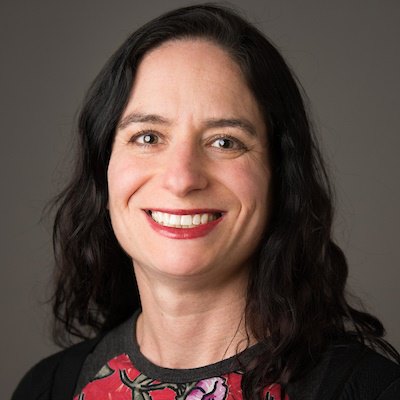 Dr. Lauren Woods is currently an Assistant Professor in the Occupational Therapy department at University
of Tennessee Health Science Center (UTHSC). Dr. Woods "use[s] the knowledge gained
from my EPDR degree in all of the courses I teach in addition to my research projects.
I use the knowledge and skills to work toward educating students to be holistic practitioners
capable of using clinical reasoning to meet the needs in a variety of settings across
the lifespan. Occupational therapists must have an understanding of physical, psychosocial
and cognitive processes that allow an individual to engage successfully in daily occupations.
During my graduate studies, I took courses on intersectionality and the positive impact
of recognizing and addressing the diverse needs of individuals I encounter as an educator
and in the community. I integrate the principles learned in these courses by including
lectures on cultural awareness and inclusiveness during each of the courses I teach."
Dr. Lauren Woods is currently an Assistant Professor in the Occupational Therapy department at University
of Tennessee Health Science Center (UTHSC). Dr. Woods "use[s] the knowledge gained
from my EPDR degree in all of the courses I teach in addition to my research projects.
I use the knowledge and skills to work toward educating students to be holistic practitioners
capable of using clinical reasoning to meet the needs in a variety of settings across
the lifespan. Occupational therapists must have an understanding of physical, psychosocial
and cognitive processes that allow an individual to engage successfully in daily occupations.
During my graduate studies, I took courses on intersectionality and the positive impact
of recognizing and addressing the diverse needs of individuals I encounter as an educator
and in the community. I integrate the principles learned in these courses by including
lectures on cultural awareness and inclusiveness during each of the courses I teach."
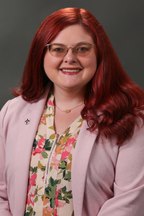 Dr. Mollie Clark is currently an Assistant Professor of Psychology at Union University in Jackson,
TN, as well as a licensed professional counselor with mental health service provider
designation by the State of Tennessee. Dr. Clark says, "The doctoral degree in EDPR
helped me learn to produce quality research. My research training was mostly in quantitative
research, and, thanks to Dr. Harrell-Williams, I've been successful at my quantitative
research endeavors. I have also been able to publish my first qualitative article
recently, and I would not have been able to undertake that project were it not for
what I learned from Dr. Nordstrom. Most importantly, the EDPR program developed my
writing skills, which significantly impacted my teaching skills. Because of the program,
everything that I write and the lessons that I teach are well-organized, clear and
concise.
Dr. Mollie Clark is currently an Assistant Professor of Psychology at Union University in Jackson,
TN, as well as a licensed professional counselor with mental health service provider
designation by the State of Tennessee. Dr. Clark says, "The doctoral degree in EDPR
helped me learn to produce quality research. My research training was mostly in quantitative
research, and, thanks to Dr. Harrell-Williams, I've been successful at my quantitative
research endeavors. I have also been able to publish my first qualitative article
recently, and I would not have been able to undertake that project were it not for
what I learned from Dr. Nordstrom. Most importantly, the EDPR program developed my
writing skills, which significantly impacted my teaching skills. Because of the program,
everything that I write and the lessons that I teach are well-organized, clear and
concise.
The EDPR program was an excellent complement to my previous study and work in counseling.
I have found that this combination of counseling, educational psychology, and research
is a highly marketable combination because I can teach almost all of the courses in
general psychology undergraduate and graduate programs, as well as several courses
required for degrees in education. The amount of university faculty appointments I've
been offered is surprising, considering that I've only been finished with my degree
for three years.
I enjoyed so much about the EDPR doctoral program. First, the faculty are knowledgeable
and caring. They understand that we are living life and juggling many responsibilities,
and they want you to succeed. My dissertation committee chair took a position at another
university right after I proposed by dissertation. Instead of the horror stories I've
heard from my friends regarding delays in graduation due to these kinds of issues,
Dr. Hsueh immediately stepped in as my dissertation chair. The process continued smoothly,
and I still graduated within my targeted timeline. Next, I enjoyed the coursework.
The courses were useful and engaging. I appreciated Dr. Mueller and Dr. Winsor's confidence
toward me and my autonomy when I stepped into the role of teaching assistant. Everyone
on the faculty accepted me for who I was, cared about me personally and related to
me as the professional I already was rather than someone who was inferior to them."
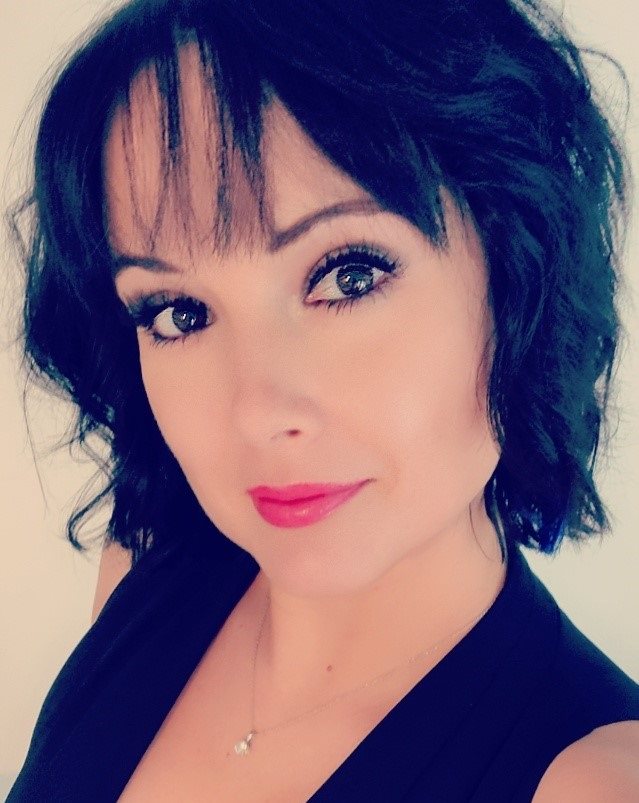 Dr. Paige P. Licata graduated from the EDPR program in 2019. Her dissertation was titled, “Teachers’
Meaning-Making Process of Yoga as an Embodied Self-Regulation Tool: The High School
Yoga Mat Study”. Currently, she is a Patent to Products (P2P) Research Fellow with
Research and Innovation at The University of Memphis, wherein she is being trained
and supported in entrepreneurship to commercialize her work from her dissertation
and post-doctoral fellowship. Dr. Licata says, "My EDPR degree equipped me with vast
knowledge and skills to be successful in my personal and professional life, yet the
nugget of wisdom with the most impact was better understanding the learning process.
Better understanding how others learn, or how they make meaning of their internal
and external world, has afforded me the opportunity to help others reframe real and
perceived obstacles to empower themselves to see the endless possibilities for their
lives. I am incredibly grateful to EDPR for my mentors, education and experience,
because it has allowed me to embrace the possibilities for my own personal and professional
life."
Dr. Paige P. Licata graduated from the EDPR program in 2019. Her dissertation was titled, “Teachers’
Meaning-Making Process of Yoga as an Embodied Self-Regulation Tool: The High School
Yoga Mat Study”. Currently, she is a Patent to Products (P2P) Research Fellow with
Research and Innovation at The University of Memphis, wherein she is being trained
and supported in entrepreneurship to commercialize her work from her dissertation
and post-doctoral fellowship. Dr. Licata says, "My EDPR degree equipped me with vast
knowledge and skills to be successful in my personal and professional life, yet the
nugget of wisdom with the most impact was better understanding the learning process.
Better understanding how others learn, or how they make meaning of their internal
and external world, has afforded me the opportunity to help others reframe real and
perceived obstacles to empower themselves to see the endless possibilities for their
lives. I am incredibly grateful to EDPR for my mentors, education and experience,
because it has allowed me to embrace the possibilities for my own personal and professional
life."
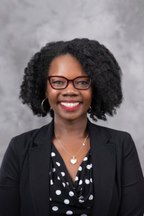 Dr. Rashunda Robinson is Associate Professor of psychological sciences at Winston-Salem State University.
She says, "The research skills, teaching experience and mentoring I gained in the
program helped me get my initial job and tenure. The mentorship I received was my
favorite thing about the program; I tell my students a lot of the things that were
told to me during my time in the program.
Dr. Rashunda Robinson is Associate Professor of psychological sciences at Winston-Salem State University.
She says, "The research skills, teaching experience and mentoring I gained in the
program helped me get my initial job and tenure. The mentorship I received was my
favorite thing about the program; I tell my students a lot of the things that were
told to me during my time in the program.
Professionally, this program gave me the opportunity to receive a collaborative broadening participation research center grant funded by the National Science Foundation to study the development of identity and motivation of undergraduate African American students in STEM. I’m the principal investigator at my institution and one of three educational psychologists on the PI team. This is literally my dissertation work on a larger scale. Personally, through this program, I met my spouse during my postdoc and we now have our baby girl."
 Dr. Sarah Daniels works as a child life research specialist for St. Jude Children’s Research Hospital.
As a member of the child life program and in the department of psychosocial services,
Dr. Daniels leads and collaborates on research and quality improvement projects that
evaluate the efficacy and role of child life services in the hospital setting, as
well as explore the developmental impacts of cancer on pediatric, adolescent and young
adult patients.
Dr. Sarah Daniels works as a child life research specialist for St. Jude Children’s Research Hospital.
As a member of the child life program and in the department of psychosocial services,
Dr. Daniels leads and collaborates on research and quality improvement projects that
evaluate the efficacy and role of child life services in the hospital setting, as
well as explore the developmental impacts of cancer on pediatric, adolescent and young
adult patients.
Dr. Daniels writes, "The EDPR program was a perfect blend of instruction covering
research methods (both qualitative and quantitative) and human development. I learned
how to align theoretical perspectives to research approaches and gained confidence
designing studies from scratch. I also learned how to collaborate across disciplines,
as many students in the program came from different professional backgrounds.
My degree allowed me to transition away from a fully clinical role into a research
position at the same institution. This new role provided me with more personal flexibility
and autonomy while continuing to work in a profession that I am passionate about.
Since completing the PhD program, I’ve also gained experience working as an adjunct
instructor at four different universities teaching graduate courses in human development
and family studies. I’ve enjoyed opportunities to publish journal articles and textbook
chapters, and to present at professional and academic conferences. It is hard to imagine
any of this being possible without the foundational knowledge and mentorship provided
to me throughout the EDPR program.
I enjoyed the variety of courses offered each semester and continue to refer to class notes from my time as a student. The EDPR faculty have such a range of expertise and offer genuine support throughout the program. No matter what your research interests are, or what methodology you are drawn to, you can feel confident that there will be strong mentorship throughout your dissertation process. The relationships that I built with peers in the program continue to be some of my closest friendships today!"
